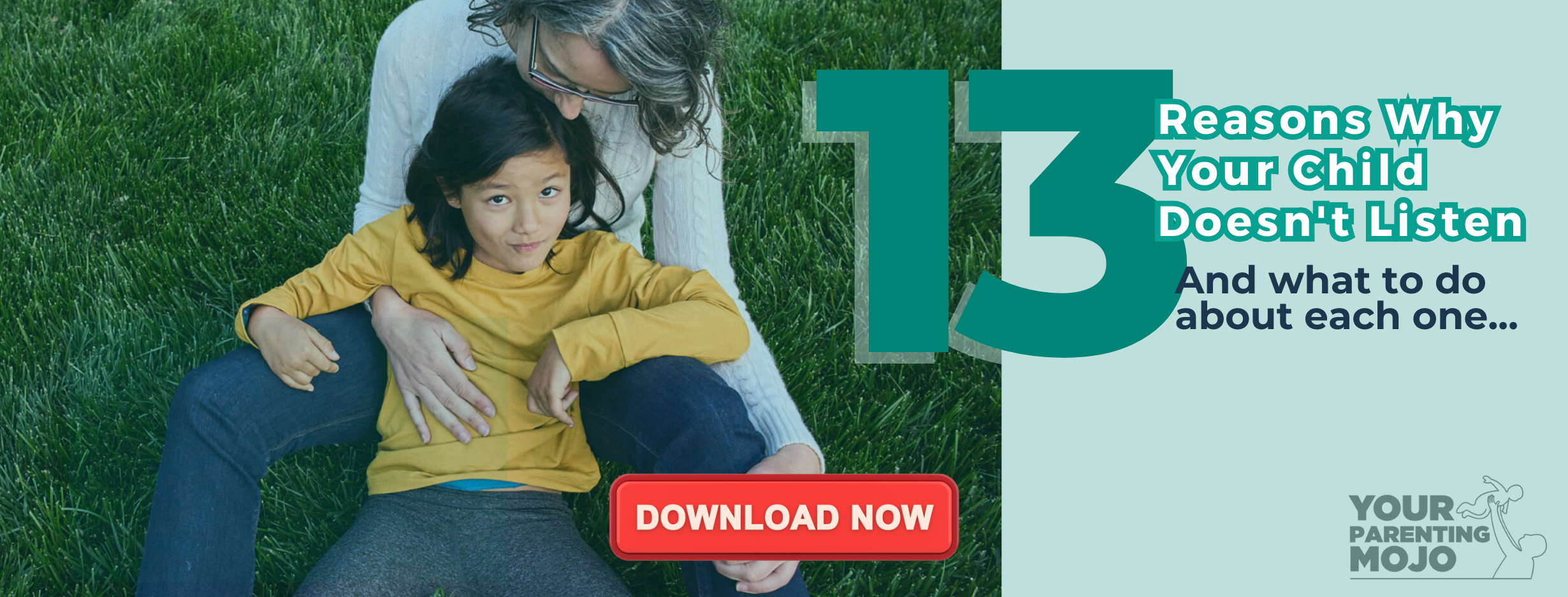Bra podcast
Sveriges mest populära poddar

Your Parenting Mojo – Respectful, research-based parenting ideas to help kids thrive
Q&A#5: What really matters in parenting? Part 1
49 min •
5 februari 2024
Listener Roberta submitted a question recently on YourParentingMojo.com/question:
What does the research say are the decisions that really matter in parenting?
That question immediately got my brain churning about what could be included, and how we would decide what to include, and how much of what's included could actually be research-based.
The episode begins with a look at some of the major categories of factors that impact our children's development that we may not have as much control over, because we have to acknowledge these before we can look at what we do impact.
Then I look at some of the things we do control but I think we can pretty safely stop worrying about them. The impact that each of these things has is likely to be so tiny as to individually meaningless.
Finally, I count down my list of the top 5 things that I think impact children's development.
This episode is for parents of children aged about 2 onwards. I think infants have some different needs, and I'm planning a separate episode on those later in the year.
Taming Your Triggers
Embark on a journey of deep healing and understanding with the Taming Your Triggers Workshop. Uncover the real reasons behind your reactions to your child's behavior and parent from a space of calm and confidence.
By addressing triggers, we're not just leveling up our lives today; we're contributing to a cultural shift, ensuring all children receive the message: "Yes, you are lovable just as you are!"
Sign up for the waitlist now. Click the banner to learn more.
13 Reasons Your Child Doesn't Listen
Does it seem like your child deliberately ignores you when they ‘don’t listen’? There’s actually way more to it than that! From being lost in their enchanting play to navigating daily challenges, discover the 13 reasons why your child doesn’t listen–and what to do about each one. Once you understand these reasons, you can connect with your child and support them, so they'll be more willing to collaborate with you. Click the banner to download the 13 Reasons Your Child Doesn't Listen cheat sheet now!
Other episodes/blogs referenced
014: Understanding the AAP’s new screen time guidelines
052: Grit: The unique factor in your child’s success?
061: Can Growth Mindset live up to the hype?
067: Does the Marshmallow Test tell us anything useful?
068: Do I HAVE to pretend play with my child?
148: Is spanking a child really so bad?
196: How to do right by your child – and everyone else’s with Dr. Elizabeth Cripps
Jump to Highlights
00:54 Introducing the topic
01:09 Question from Listener Roberta
07:43 Socio-economic status affects a child's environment and parenting approaches
18:25 Jeannou's journey reveals the intricate link between upbringing and well-being
27:39 To understand what truly matters in parenting, we must consider both achievable outcomes and deeper definitions of success.
29:38 List of things that are not worth worrying about for children in their toddler years and beyond
33:06 The five things that really matter in parenting
48:21 Wrapping up the discussion
References
Bradley, R.H., & Corwyn, R.F. (2002). Socioeconomic status and child development. Annual Review of Psychology 53, 371-99.Hoff, E., Laursen, B., & Tardif, T. (2019). Socioeconomic status and parenting. In: M. H. Bornstein (Ed.). Handbook of parenting Volume 2: Biology and ecology of parenting (p.421-447). Mahwah, NJ: Lawrence Erlbaum
Myers, D.G. (2008). Will money buy happiness? In S. Lopez (2008), Positive psychology: Exploring the best in people (Vol. 4: Pursuing human flourishing). Westport, CT: Praeger.
Polderman, T.J.C., Benyamin, B., de Leeuw, C.A., Sullivan, P.F., van Bochoven, A., Visscher, P.M., & Posthuma, D. (2015). Meta-analysis of the heritability of human traits based on fifty years of twin studies. Nature Genetics 47(7), 702.
Ulferts, H. (2020). Why parenting matters for children in the 21st century: An evidence-based framework for understanding parenting and its impact on child development. Organization for Economic Co-operation and Development Education Working Paper No. 222. Retrieved from: https://www.researchgate.net/profile/Hannah-Ulferts/publication/342082899_Why_parenting_matters_for_children_in_the_21st_century_An_evidence-based_framework_for_understanding_parenting_and_its_impact_on_child_development/links/5ee1eb5aa6fdcc73be702921/Why-parenting-matters-for-children-in-the-21st-century-An-evidence-based-framework-for-understanding-parenting-and-its-impact-on-child-development.pdf
Kategorier
Förekommer på
00:00
-00:00